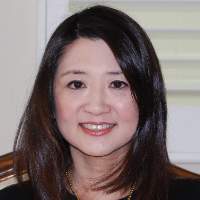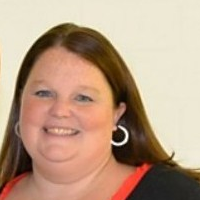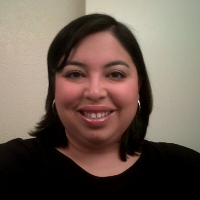When it comes to preparing for college, timing is everything. The college search process can be both exciting and overwhelming, but starting early can make all the difference. By beginning the college search early on, students can take advantage of numerous opportunities, explore their options, and ensure a smoother transition into higher education. In this article, we will delve into the importance of starting early and provide a timeline for when students should initiate their college search.
The Importance of Starting Early
Starting the college search process early offers a multitude of benefits. First and foremost, it allows students ample time to thoroughly research and explore various colleges and universities. By starting early, students can gather comprehensive information about different institutions, academic programs, campus culture, and other important factors that will ultimately influence their college decision.
Additionally, starting early provides students with an opportunity to prepare for standardized tests, such as the SAT or ACT. These tests play a crucial role in the college admissions process, and early preparation allows students to familiarize themselves with the test format, practice their skills, and improve their scores.
Furthermore, beginning the college search early enables students to build a strong academic and extracurricular profile. By focusing on maintaining good grades and getting involved in meaningful extracurricular activities, students can showcase their passions and talents to college admissions officers. This early investment in academics and extracurriculars can significantly enhance their college applications.
Freshman and Sophomore Years
Believe it or not, the college search process can begin as early as freshman and sophomore years of high school. During these formative years, students can lay the foundation for a successful college application. It is essential for students to focus on developing strong study habits, maintaining good grades, and taking challenging courses. These early academic achievements will not only contribute to their overall GPA but also demonstrate their commitment to academic excellence.
Additionally, students should use this time to explore their personal interests and passions. Engaging in extracurricular activities, such as clubs, sports, or community service, can help students discover their true passions and cultivate their leadership skills. Taking the time to explore different activities and interests can also help students shape their future college choices and align them with their long-term goals.
Seeking guidance from school counselors or mentors during the freshman and sophomore years is also beneficial. These professionals can provide valuable advice, assist in creating a preliminary college list, and guide students towards resources that will aid in their college search process.
The Junior Year
Junior year is a critical time in the college search process. It is during this period that students should intensify their efforts and take specific actions to ensure a successful transition to college. First and foremost, students should continue to focus on academic excellence by enrolling in challenging courses and maintaining high grades. Junior year grades are often considered by college admissions committees, so it is essential to demonstrate consistent effort and dedication.
Preparing for standardized tests, such as the SAT or ACT, should be a priority during junior year. Students can utilize various test prep resources, such as practice exams, study guides, and tutoring services, to improve their scores. Early preparation and practice can alleviate test anxiety and increase the likelihood of achieving desirable results.
In addition to academics and test preparation, students should make a point to attend college fairs, campus visits, and information sessions. These opportunities allow students to get a firsthand feel for different college environments, interact with current students, and gather more information about the programs and resources offered by various institutions. Junior year is also an ideal time to initiate conversations with teachers, counselors, and parents about college plans and goals. Their insights and guidance can provide valuable perspectives and help students make informed decisions.
The Senior Year
As senior year approaches, students should focus on narrowing down their college choices and taking the necessary steps to complete their college applications. This is the time to consider factors such as academic programs, location, campus culture, and financial affordability. By carefully evaluating these aspects, students can create a well-rounded list of colleges that align with their interests, goals, and values.
Understanding the application timeline is crucial during senior year. Students must be aware of application deadlines for admissions, scholarships, and financial aid. Missing these deadlines can have a significant impact on their chances of acceptance and potential financial assistance.
Writing compelling college essays and preparing for college interviews are also essential during senior year. Students should invest time in crafting thoughtful and authentic essays that reflect their unique qualities, experiences, and aspirations. It is equally important to practice for college interviews to effectively communicate their strengths and interests.
Lastly, visiting the campuses of top-choice colleges, if possible, can provide invaluable insights and help students make more informed decisions. Exploring the campuses, attending information sessions, and interacting with current students can give students a better sense of the college environment and whether it aligns with their expectations and aspirations.
Conclusion
Embarking on the college search process early can set students on a path towards success. By starting as early as freshman and sophomore years, students can build a strong foundation, explore their interests, and maximize their opportunities for admission to their desired colleges and universities. Through careful planning, continuous effort, and utilizing available resources, students can navigate the college search process with confidence and embark on an exciting journey towards higher education.
Our Counselors Answered:
When should students start the college search?
High school juniors: start thinking beyond standardized tests and explore college options
Now that all is (almost) said and done for the high school seniors who will be attending college in Fall 2012, the focus will turn to high school juniors and the impact that many societal factors will have on their college admissions process.
My advice remains the same: avoid focusing on standardized tests during the upcoming weeks. It is so easy to fall victim to the hype surrounding the controversial exams, but in the process students lose the opportunity to attend college fairs and information sessions right here in Los Angeles.
A few words of advice:
1) Remember, not only does the college choose you, you also choose the college – do your research and meet representatives any chance you get!
2) The more times you express interest in a college, the better the chances you will be admitted (all things being equal). Every time you attend a college fair or information session, make sure you complete the form to let them know you attended. Colleges put this information in your file and track your interest.
3) As a follow-up to #2 – go online and request information from colleges – express interest early and often.
4) Do your research: know when colleges will be in town and don’t miss them! It’s so easy to do when all you can think about are those standardized tests…almost seems contradictory, doesn’t it?
 Patricia AviezerPresidentInside Track To College, Inc.
Patricia AviezerPresidentInside Track To College, Inc.
It’s never TOO Early…
What courses should I take in high school to prepare me for success in college and after?
These are questions that begin as early as middle school, so there are some parts of the college search that need to begin there. More and more middle schools are offering high school courses and if you’re really interested in preparing yourself for college acceptance and success, you need to be enrolled in these classes. By researching, “What courses are colleges looking for in a successful candidate,” you will be better prepared to enroll in the right courses for you. As a high school student, you need to have a four-year plan early and it needs to be reviewed each year. Don’t forget their are opportunities to accelerate through summer programs, online and dual enrollment options too!
 Michelle GreenAdmissions ConsultantMy College Admissions Coach
Michelle GreenAdmissions ConsultantMy College Admissions Coach
Students should begin their college search
no later than junior year of high school. They can research via the internet and look up college websites, read helpful student review books like “Fiske Guide to Colleges” and check out collegeboard.com, unigo.com and whatever resources their high schools provide.
It’s okay to start with a list with dozens of schools. By the beginning of senior year, the student should have narrowed their list to the schools they will be applying to, which should be from approximately 6-12 schools.
Students should keep all of their options open when they begin the college search process. Don’t fall in love with just one school! There are 3000 colleges in the country. It’s helpful to research schools based on size, majors/minors of interest, admitted student profile.
Make sure you have met all of the admissions requirements of the school. Do they require 4 years of English, 3 years of Math, 2 years of History/Social Science, 3 years of Foreign Language and a Visual Arts requirement? If you don’t have everything they require, then you don’t match their criteria! If it’s early in the process and you have any credit/class deficits, make them up BEFORE senior year!
If you are a 3.0 student applying to a school with an admitted student profile of 3.75 or above, this would be a reach school. It’s okay to apply there – but you should also add in schools that more closely match your academic record, too.
 Bill PrudenHead of Upper School, College CounselorRavenscroft School
Bill PrudenHead of Upper School, College CounselorRavenscroft School
When to Start? When You are Ready
Like so much of the college search process, when to start is more rooted in the individual than in any formula or age old wisdom. Exposure to college can begin at any age—a quick side trip or a campus drive through on a family vacation can offer a nice little preview but if the prospective student is not really ready, the effort will be for naught. I will never forget my family’s own vacation detour through the University of Virginia the summer before my oldest daughter was starting high school. As we came around a corner and the lawn and chapel came into view, my daughter exclaimed, “Mom, look.” I was thrilled, figuring that like so many before her she was instantly captivated by one of the most beautiful campuses there is, but when her next comment was “look at those beautiful bridesmaids dresses,” I realized we were a bit premature in our efforts, and so be it. Now as a senior she is fully engaged in the process and has already submitted multiple applications to schools on a list that was thoughtfully developed. Ultimately, like so much of the process it is all about find the right individual fit.
 王文君 June ScortinoPresidentIVY Counselors Network
王文君 June ScortinoPresidentIVY Counselors Network
you can start the search as early as 9th grade
understanding the admissions requirement can lead to motivation for having a plan in place therefore, challenging yourself for selective colleges.
 Mildred PlanasSupervisor of Student Support ServicesBarringer High School
Mildred PlanasSupervisor of Student Support ServicesBarringer High School
When should students start the college search?
If a student knows what he or she is looking for in a college, it is never too early to start compiling a list. At the very latest, students should start their college search the Spring of their Junior year so that they are prepared come Fall to begin the application process with their School Counselor.
Waiting until Senior year to begin the search will put a student behind. It can be overwhelming, and it is best to take the college process one step at a time instead of leaving everything until the last minute.
 Scott WhiteDirector of GuidanceMontclair High School
Scott WhiteDirector of GuidanceMontclair High School
When should students start the college search?
After January of the junior year.
 Robert FranekAuthor of The Best 373 CollegesThe Princeton Review
Robert FranekAuthor of The Best 373 CollegesThe Princeton Review
When should students start the college search?
Here is my video response to the question.
 Joyce Vining MorganFounder and college counselorEducational Transitions
Joyce Vining MorganFounder and college counselorEducational Transitions
When should students start the college search?
In Junior year of high school. If possible. Freshmen and sophomore should concentrate on high school. Waiting until senior year makes the process very rushed, at best.
 Joyce Vining MorganFounder and college counselorEducational Transitions
Joyce Vining MorganFounder and college counselorEducational Transitions
When should students start the college search?
In Junior year of high school if possible. Freshmen and sophomores should concentrate on high school. Waiting until senior year makes the process very rushed, at best.
 Pam ProctorAuthor The College Hook
Pam ProctorAuthor The College Hook
When should students start the college search?
Here is my video response to the question.
 Lillian BernalCounselor
Lillian BernalCounselor
When should students start the college search?
The earlier the better. Students should be thinking about the college process by freshmen year. Students can start researching the different college degrees because some schools may not offer the program of study you are interested in. It’s important to start thinking about colleges early because if you wait until senior year it may be too late. College applications should be sent out by fall semester to have a better opportunity in being accepted to the college of your choice. College campus visits should start around sophomore and junior year so you can experience the campus lifestyle and have better idea as to which college campus is a better fit for you.
 Angela ConleyCollege Admission ExpertVentureForth
Angela ConleyCollege Admission ExpertVentureForth
When should students start the college search?
When considering college, I encourage families to think outside the box. It’s better to consider the kind of school you want earlier than later. It’s difficult to “plan” for any particular college, but there are “groups of colleges and universities.”
If students want the highly selective college, they begin “first gear” planning in ninth grade, as translated with the concept of starting strong. It’s far easier to build on a solid foundation than to “re-group” after falling off the bandwagon. Begin your first year getting the strongest grades possible, thus if you confront an unexpected challenge, the impact is less than starting low and trying to move from a “four cylinder” vehicle to a Maserati in one fell swoop. In other words, if you want a very selective, or Ivy League environment, understand that every year counts and the admission committees are looking for consistent persistence. While forgiveness is sometimes granted for slow-starters, most schools seek students who manifest strong evidence of an ability to handle challenging intellecual material.
By the same token, if one approaches the secondary enterprise knowing that no particular hunger exists for a focus, then know that doing your very best in whatever arena you engage, intellectual, extra-curricular or other, college is a process, as is discerning what you seek in a college. Getting to know ones’ own interests, strengths and areas of challenge is key to determining whether college is your best choice or which is a good match option. Regardless of college category; bring your “A” game.
 Tam Warner MintonConsultantCollege Adventures
Tam Warner MintonConsultantCollege Adventures
When to start?
Thinking about college should begin when you start high school. Think about the fact that freshman grades do count. The summer before the junior year is probably the best time to really start searching…after you get to know yourself! Get as much as you can done before senior year. If you apply early you’ll enjoy senior year more. Start visiting campuses during the junior year.
 Helen H. ChoiOwnerAdmissions Mavens
Helen H. ChoiOwnerAdmissions Mavens
When should students start the college search?
I recommend that most students start seriously thinking about their individual colleges searches during their junior year. There is really no need to start researching individual colleges prior to that time.
However, in order to give themselves the widest array of options available when senior year rolls around, I always remind students that they can start preparation in the 9th and 10th grades by building strong study skills, self-discipline, and a solid academic record.
 Nicholas Umphrey
Nicholas Umphrey
When should students start the college search?
In my opinion, it is never too early. I literally just did one with my six year old son in mind (poor kid). Naturally, in my line of work, this is something I am always thinking about.
I think that to start you need to ask yourself some serious objective questions. Where do you want to go geographically? Do you want to be in an urban, suburban, or rural area? Do you want a large school that is a city in itself, or do you want a school that may even have less enrollment than your high school? It is important to examine these values first before you decide on a major. It is also important to discuss this with your parents as they may have some financial perameters.
 Erica WhiteCollege & Career CounselorMiddletown High School
Erica WhiteCollege & Career CounselorMiddletown High School
Beginning of Junior Year
It’s best to start the beginning of junior year with the college search, this way you have an entire year to research schools, meet with admission reps at college fairs and visit the campuses. Senior year can be quite stressful in regards to the college process, so the more you do junior year and the earlier you start the better off you will be. My goal for all of my students is to have their college list finalized by the time they start senior year so we can focus on applications.
 Diane Coburn Bruningchoreographer/counselor in performing artsCollege Match, Inc, Performing Arts Specialist
Diane Coburn Bruningchoreographer/counselor in performing artsCollege Match, Inc, Performing Arts Specialist
When should students start the college search?
If you have a passion in an area which you feel certain you wish to pursue, start as soon as you recognize that to see what is possible and what you are working towards. this may be as early as freshman year in high school. If you have an older sibling going through the process, tag along on visits and tours. Then go visit your brother or sister at their college for a weekend. All of this may happen when you are several years away from applying but you may be amazed at how it helps you know what you are looking for in a college. While the actual search may not truly begin until your sophomore or junior year, you will have had some experience to inform that search.
 Nancy MilneOwnerMilne Collegiate Consulting
Nancy MilneOwnerMilne Collegiate Consulting
Beginning the Search
As an independent educational consultant I work with students at all phases of the search. Typically students get serious about the college search during their junior year in high school. That is not to say one can’t begin sooner. What is important is that the student is engaged in the process. For some students that interest begins as a sophomore. The sooner one starts thinking ahead, the easier it is to make sure the high school curriculum will meet the needs for college entrance. One of my favorite lines says: “before junior year, college visits should be no more than drive-bys at a speed no less than 25 miles/hr!” Obviously if you are visiting grandma across the country and this is your chance to check out schools, you should do it. Please don’t wait until fall of your senior year to tackle this project. By spreading out the components to the application: visits, requesting letters of rec, writing essays, filing the common app, filling out the FAFSA; you can enjoy this journey stress free.
 Annie ReznikCounselor/CEOCollege Guidance Coach
Annie ReznikCounselor/CEOCollege Guidance Coach
Begin in Earnest During Junior Year
Maintaining focus on academic success is the most significant way students can prepare for the college search process early in their high school career. Searching for colleges prior to junior year can prove distracting. Junior year is the ideal time to start the college search process because elements of a student’s academic profile (grades, classes, tests scores) are more fully formed.
 Donovan BlakeLead ConsultantGriffin Blake Educational Consulting
Donovan BlakeLead ConsultantGriffin Blake Educational Consulting
On your mark, get set,Go!
I recommend that students start the college search during their junior year of high school. By this time students have enough data to help guide them to the right college. Data includes the transcript, cum GPA, and a career interest survey. With this information students can look for colleges that have their major; the student can see if they meet the admissions criteria of colleges. Students can determine if they will need to take the ACT or the SAT to satisfy the admissions requirements.
 Helen Cella
Helen Cella
When should students start the college search?
Junior year
 Francine SchwartzFounder/ PresidentPathfinder Counseling LLC
Francine SchwartzFounder/ PresidentPathfinder Counseling LLC
When should students start the college search?
Freshman and sophomores in high school should begin exploring careers and majors. They should become aware of the myriad of post-secondary options. Making a few informal college visits while on family vacations or to local colleges is a good way to become familiar with college campuses and start considering the types of factors important to you such as location, size and majors offerred.
High school juniors should begin the college search in earnest. By the end of the summer prior to senior year, juniors should have narrowed their list down to 10-12 schools and have visited as many as possible.
Senior year should be spent completing applications and remaining visits in the fall.
Francine Schwartz M.A., LPC, NCC
Founder and President
Pathfinder Counseling LLC
 Laura O’Brien GatzionisFounderEducational Advisory Services
Laura O’Brien GatzionisFounderEducational Advisory Services
Beginning the College Search
Thinking about college should begin way before high school in order to get in the college preparation courses. College visits can begin during family trips during sophomore year (so that you remember your impressions of the campus). Ideally, you should take the PSAT or PLAN as well during your Sophomore year. Trying to figure out what you require from a college should begin in earnest your Junior year and the research into colleges should go in depth during Junior year. When you walk into your high school in the Fall of your Senior year, it would be great if you have your college list lined up even if you still need time to finalize it.
 Nancy MilneOwnerMilne Collegiate Consulting
Nancy MilneOwnerMilne Collegiate Consulting
Beginning the Search
Typically students get serious about the college search during their junior year in high school. That is not to say one can’t begin sooner. What is important is that the student is engaged in the process. For some students that interest begins as a sophomore. The sooner one starts thinking ahead, the easier it is to make sure the high school curriculum will meet the needs for college entrance. One of my favorite lines says: “before junior year, college visits should be no more than drive-bys at a speed no less than 25 miles/hr!” Obviously if you are visiting grandma across the country and this is your chance to check out schools, you should do it. Please don’t wait until fall of your senior year to tackle this project. By spreading out the components to the application: visits, requesting letters of rec, writing essays, filing the common app, filling out the FAFSA; you can enjoy this journey stress free.
 Erin AveryCertified Educational PlannerAvery Educational Resources, LLC
Erin AveryCertified Educational PlannerAvery Educational Resources, LLC
All Who Wander Are Not Lost
The college search is a process. Allow it to be one. Fail to plan and you plan to fail. Begin by making a plan, and if you need assistance, seek out a qualified expert who is immersed in the process year in and year out. Finally, leave some space to grow. Often, parents buy their children clothes a size bigger because if there is anything for certain, it’s growth. Keep an open mind because what you think you like (college-wise) may change over the course of your journey. Enjoy!
 Ms. RobinsonHead CounselorCedar Grove High School
Ms. RobinsonHead CounselorCedar Grove High School
The best time to begin searching for colleges.
Students should start as early as middle school researching colleges and universities. This will give students an idea of the gpa they need to obtain while in high school, and to start preparing for standardized tests such as the SAT and ACT to meet admission requirements. Also, students can learn which colleges have their intended majors, so they will know where to apply and which colleges offer the best program.
 Kimberly ParsonsCounselorHerbert Hoover High School
Kimberly ParsonsCounselorHerbert Hoover High School
Starting your college search…
I don’t know if it is ever to early to start researching colleges. I would say starting to prepare for college begins when you enter High School, by deciding if you are on the college pathway, and taking those classes that are going to help you get into college. The earlier you start researching colleges you may be considering, the less stressful your Senior year of High School can be. Your Junior year is a good time to start narrowing down the field, and forming lists of things that you are looking for in a college. For example, fields of study they offer, is it a 2 year or 4 year college, is it close to home or far away, how much is it going to cost, etc…Then I highly suggest, if possible, going to visit the colleges you feel are a good fit for you, and taking a campus tour!
 Kimberly ParsonsCounselorHerbert Hoover High School
Kimberly ParsonsCounselorHerbert Hoover High School
Starting your college search…
I don’t know if it is ever to early to start researching colleges. I would say starting to prepare for college begins when you enter High School, by deciding if you are on the college pathway, and taking those classes that are going to help you get into college. The earlier you start researching colleges you may be considering, the less stressful your Senior year of High School can be. Your Junior year is a good time to start narrowing down the field, and forming lists of things that you are looking for in a college. For example, fields of study they offer, is it a 2 year or 4 year college, is it close to home or far away, how much is it going to cost, etc…Then I highly suggest, if possible, going to visit the colleges you feel are a good fit for you, and taking a campus tour!
 Eileen Ed.D.Associate DirectorEducational Directions, Inc.
Eileen Ed.D.Associate DirectorEducational Directions, Inc.
Don’t wait until it’s too late!
Many students believe they need to begin searching for colleges when they are in the 9th grade, and others wait until September of the senior year. Even though it is a good idea to think about college entering high school in terms of selecting the most challenging classes you can handle, it really is early to begin looking at specific colleges. And waiting until your senior year will create a great deal of unnecessary stress for you and for your parents, and may actually place you at risk for selecting something “just to get in somewhere.”
Instead, the best time to begin researching specific colleges is at the end of 10th, beginning of 11th grade. You start slowly, looking up areas of interest, and perhaps finding summer jobs or other activities you might take part in that interest you and supplement your class work, both to enhance your resume, but more importantly to help you begin the exploration process–What does interest me?
Beginning in this time frame also allows you to use your school breaks wisely and begin visiting college campuses. Begin locally, just to get a feel for what a college campus looks like. You may well fall in love with the first few you visit, so think ahead and plan many visits to different locations. Remember too that you may not get into the first school you think is perfect for you, but know that there are many wonderful possibilities out there! Be adventurous, and enjoy!
 Eileen Ed.D.Associate DirectorEducational Directions, Inc.
Eileen Ed.D.Associate DirectorEducational Directions, Inc.
Getting Started
Many students believe they need to begin searching for colleges when they are in the 9th grade, and others wait until September of the senior year. Even though it is a good idea to think about college entering high school in terms of selecting the most challenging classes you can handle, it really is early to begin looking at specific colleges. And waiting until your senior year will create a great deal of unnecessary stress for you and for your parents, and may actually place you at risk for selecting something “just to get in somewhere.”
Instead, the best time to begin researching specific colleges is at the end of 10th, beginning of 11th grade. You start slowly, looking up areas of interest, and perhaps finding summer jobs or other activities you might take part in that interest you and supplement your class work, both to enhance your resume, but more importantly to help you begin the exploration process–What does interest me?
Beginning in this time frame also allows you to use your school breaks wisely and begin visiting college campuses. Begin locally, just to get a feel for what a college campus looks like. You may well fall in love with the first few you visit, so think ahead and plan many visits to different locations. Remember too that you may not get into the first school you think is perfect for you, but know that there are many wonderful possibilities out there! Be adventurous, and enjoy!
 Eileen Ed.D.Associate DirectorEducational Directions, Inc.
Eileen Ed.D.Associate DirectorEducational Directions, Inc.
Getting Started
Many students believe they need to begin searching for colleges when they are in the 9th grade, and others wait until September of the senior year. Even though it is a good idea to think about college entering high school in terms of selecting the most challenging classes you can handle, it really is early to begin looking at specific colleges. And waiting until your senior year will create a great deal of unnecessary stress for you and for your parents, and may actually place you at risk for selecting something “just to get in somewhere.”
Instead, the best time to begin researching specific colleges is at the end of 10th, beginning of 11th grade. You start slowly, looking up areas of interest, and perhaps finding summer jobs or other activities you might take part in that interest you and supplement your class work, both to enhance your resume, but more importantly to help you begin the exploration process–What does interest me?
Beginning in this time frame also allows you to use your school breaks wisely and begin visiting college campuses. Begin locally, just to get a feel for what a college campus looks like. You may well fall in love with the first few you visit, so think ahead and plan many visits to different locations. Remember too that you may not get into the first school you think is perfect for you, but know that there are many wonderful possibilities out there! Be adventurous, and enjoy!
 Karen Ekman-BaurDirector of College CounselingLeysin American School
Karen Ekman-BaurDirector of College CounselingLeysin American School
When to Begin the Search
Some students wait until just before their last year in high school or even after that last school year has begun to start the college search. That is really a big mistake! Although students can start thinking about college even earlier, I feel that the best time to really begin the “search” is after the 10th grade. Doing some serious self-analysis is probably the best place to begin. By the end of the 10th grade, students should have a more concrete idea of courses of study that might interest them and the kind of environment they would like to study in, as well as having developed a clearer picture of their own abilities and strengths. Knowing these things will help students limit their own personal college searches and make it easier to focus on the best fits. Starting the search after the 10th grade should give students plenty of time to research institutions of interest in detail and to find out the things that they want to know about various schools. As they focus in on specific institutions, students will then also have time to make sure that they meet various admission requirements.
 王文君 June ScortinoPresidentIVY Counselors Network
王文君 June ScortinoPresidentIVY Counselors Network
When should students start the college search?
Students should start their search during the junior year, it is never too early to prepare.
 Alan Duesterhaus
Alan Duesterhaus
When should students start the college search?
In many ways it is never too early to start your college search.
For someone in 7th and 8th grade it is important to begin assessing which classes you enjoy and why. This can help you begin to formulate majors or programs of study which may be a good fit for you. Also, if you get a chance to walk around a campus or two that certainly gives you some insight.
9th graders need to look at what they expect to take for the next four years in their high school. This is where you need to challenge yourself academically. Again, if you get a chance to walk around a campus or two that certainly gives you some insight.
10th and 11th graders need to be attending college fairs, checking out college websites, and visiting campuses. If you don’t have the time or money to visit campuses make sure you are checking out their websites and signing up to be on their mailing lists. You can also look to see if they offer any online chat sessions as a way to get to learn more about the institution. You should be able to become a little more selective in your visits as you are able to hone in on aspects of a campus that resonate with you as well as aspects that don’t sit well. For example, if you have visited two or three large urban universities and have not found them to be enjoyable it is likely time to shift toward eith smaller institutions and/or institutions in a suburban or rural setting.
12th graders should have their lists narrowed down by now. You may have some colleges on the list which interest you but you have not been able to visit. Once you have all of your decision letters you will be able to rank them and determine if you need to make any final visits.
I wish you all the best in your college search.
 Alan Duesterhaus
Alan Duesterhaus
When should students start the college search?
In many ways it is never too early to start your college search.
For someone in 7th and 8th grade it is important to begin assessing which classes you enjoy and why. This can help you begin to formulate majors or programs of study which may be a good fit for you. Also, if you get a chance to walk around a campus or two that certainly gives you some insight.
9th graders need to look at what they expect to take for the next four years in their high school. This is where you need to challenge yourself academically. Again, if you get a chance to walk around a campus or two that certainly gives you some insight.
10th and 11th graders need to be attending college fairs, checking out college websites, and visiting campuses. If you don’t have the time or money to visit campuses make sure you are checking out their websites and signing up to be on their mailing lists. You can also look to see if they offer any online chat sessions as a way to get to learn more about the institution. You should be able to become a little more selective in your visits as you are able to hone in on aspects of a campus that resonate with you as well as aspects that don’t sit well. For example, if you have visited two or three large urban universities and have not found them to be enjoyable it is likely time to shift toward either smaller institutions and/or institutions in a suburban or rural setting.
12th graders should have their lists narrowed down by now. You may have some colleges on the list which interest you but you have not been able to visit. Once you have all of your decision letters you will be able to rank them and determine if you need to make any final visits.
I wish you all the best in your college search.
 Alan Duesterhaus
Alan Duesterhaus
When should students start the college search?
In many ways it is never too early to start your college search.
For someone in 7th and 8th grade it is important to begin assessing which classes you enjoy and why. This can help you begin to formulate majors or programs of study which may be a good fit for you. Also, if you get a chance to walk around a campus or two that certainly gives you some insight.
9th graders need to look at what they expect to take for the next four years in their high school. This is where you need to challenge yourself academically. Again, if you get a chance to walk around a campus or two that certainly gives you some insight.
10th and 11th graders need to be attending college fairs, checking out college websites, and visiting campuses. If you don’t have the time or money to visit campuses make sure you are checking out their websites and signing up to be on their mailing lists. You can also look to see if they offer any online chat sessions as a way to get to learn more about the institution. You should be able to become a little more selective in your visits as you are able to hone in on aspects of a campus that resonate with you as well as aspects that don’t sit well. For example, if you have visited two or three large urban universities and have not found them to be enjoyable it is likely time to shift toward either smaller institutions and/or institutions in a suburban or rural setting.
12th graders should have their lists narrowed down by now. You may have some colleges on the list which interest you but you have not been able to visit. Once you have all of your decision letters you will be able to rank them and determine if you need to make any final visits.
I wish you all the best in your college search.
 Reecy ArestyCollege Admissions/Financial Aid Expert & AuthorPayless For College, Inc.
Reecy ArestyCollege Admissions/Financial Aid Expert & AuthorPayless For College, Inc.
When should students start the college search?
9th grade is the optimum time – and don’t think it’s too early!
 John Happs
John Happs
When should students start the college search?
When the student is motivated. I have 9th graders working on it, and I have seniors that are way behind the curve. Motivation is the key component. Ideally sometime at the end of 10th grade to the middle of 11th grade allows most students the time to do a good job. Don’t wait until the second semester of your 12th grade year.
 Janet Elfers
Janet Elfers
When should students start the college search?
If you are fortunate enough to take family vacations or trips to visit relatives, start visiting colleges informally as early as 9th grade. Gradually begin thinking about what’s important to you in your college experience. The time to really begin the search and planning is 2nd semester of your junior year. That’s when you should get yourself organized and begin a methodical search. Plan campus visits. Begin making a chart of colleges you want to visit and those you want to eventually apply to. Make note of college fairs in your community. Visit admissions representatives if they come to your high school. Take advantage of campus open houses designed for juniors. Have a conference with your high school counseor. In the spring, arrange that counselor to meet with you and your parents together.
 Inna BeilinaStudent
Inna BeilinaStudent
When should students start the college search?
At least one year before college deadlines.
 Inna BeilinaStudent
Inna BeilinaStudent
When should students start the college search?
At least one year before your college deadlines come.
 Patty Finer
Patty Finer
When should students start the college search?
Typically, I like to start students in the 9th grade, at least in the looking part…. but it should seriously be underway by the start of the Junior year.
 Kris HintzFounderPosition U 4 College LLC
Kris HintzFounderPosition U 4 College LLC
When should students start the college search?
It is okay to visit a campus or two in your sophomore year, but this is an intense process and you don’t want to get too burnt out on it too quickly. So I suggest beginning to develop a college list in fall or winter of the junior year, with visiting throughout the second semester of junior year. In the summer, you can begin to develop an application strategy (i.e., choose an early decision school if appropriate, decide if you want to apply early in any non-binding programs), begin your essays, and begin the Common Application when it launches Aug 1.
 Eric Beers, Ph.D.College and Career CounselorAir Academy High School
Eric Beers, Ph.D.College and Career CounselorAir Academy High School
When should students start the college search?
I think freshmen and sophomores in high school can start perusing colleges. It is important to figure out what kind of campus you are looking for. And even a freshman can discover things like: a school of 40,000 is too big for me, or a school of 3,000 is too small, or going right next to home doesn’t feel like I will do my best learning, etc. Up until your junior year, your college list can be quite lengthy. Starting about the summer between your junior and senior year, you want to narrow down the list.
 Prilla OConnell
Prilla OConnell
When should students start the college search?
I’m from Denver and many high school students don’t really start digging in to the college application process whereas students on the East Coast start much earlier, sometimes as early as summer after 10th grade.
I think freshmen and sophomores should concentrate on their studies. Grades and the rigor of courses count!
Toward the end of the 1st semester of junior year, students should start to think about what they may want in a college. There are some great questionnaires on Naviance and College Board sites that help generate preliminary lists. I like to begin my “list” work with students between November-March of junior year to help them identify some schools that are possibilities so they may visit some of them Spring Break rather than just visiting random schools. And, even if students can’t afford to visit, they can do more research, talk to admissions counselors, etc.to get a better idea of these schools could be a good fit!
 Carita Del ValleFounderAcademic Decisions
Carita Del ValleFounderAcademic Decisions
When should students start the college search?
Certainly middle school or junior high is to early other than visiting with an older sibling and getting a sense of the college environment. However, as a Freshman or all the way up to Senior year is a good time depending on the desires and academic goals of the student. For example, if one of my clients primary desire is to attend an Ivy League then starting the planning stages and strategies for a solid application should begin by 9th grade.
Students who are now a senior must also remember this is not a race or a one-way ticket to college. Students must never give up trying to attend a university program and focus on the right path for them.
 Cheryl Millington
Cheryl Millington
When should students start the college search?
You`re heard this before, but you should start as early as possible, ideally no later than the summer before your last year of high school. This allows you to have good information on grades and scores you`ll need and have a practical plan of what you need to do to achieve your goals. Research takes longer than you imagine, so the earlier you start, the less stressful it will be. Summer is ideal since you won`t have homework and test distractions.
 Cheryl Millington
Cheryl Millington
When should students start the college search?
You`re heard this before, but you should start as early as possible, ideally no later than the summer before your last year of high school. This allows you to have good information on grades and scores you`ll need and have a practical plan of what you need to do to achieve your goals. Research takes longer than you imagine, so the earlier you start, the less stressful it will be. Summer is ideal since you won`t have homework and test distractions.
 Cheryl Millington
Cheryl Millington
When should students start the college search?
The best place to start, but not end your college search, is to use guide books and rankings. But use both to narrow your choices and get further information from other sources.
Guide books
I especially like the fact that you can research a number of schools in one place for a relatively small investment of cost and time. I also believe that it can be faster than visiting the websites and trying to summarize the web info of that many colleges. What is also great about guide books is that usually it is easy for you to compare all colleges on the same selected factors. This is a great place to start (but not end) your research. Pay attention to the tone of the review, while it may appear to be unbiased, it probably isn’t. Use guide books to make a short list of your schools and then get further information on them from other sources.
Rankings
Similar to guide books, rankings are nice to show the number of schools that may be a good fit for you. But it’s important to know the methodology of the ranking; how number one versus number 100 was determined. If you had access to the raw numbers, you’ll be surprised to know that sometimes there are very small differences in scores, for example, between number 15 and 20. Also, try to determine how the information was gathered. Who supplied the information? When was the research conducted? The answers to these questions can change the results of the rankings. Some of the factors considered may not be important to you or be as heavily weighted if you were to come up with your own ranking. You may have noticed that different rankings have different results, so look for consistency. I like to divide rankings into quarters and then see if a school consistently falls in a particular quarter. Not every school participates in every ranking, so don’t assume if they are not listed, they were below the lowest university on the ranking. Therefore, use the information carefully and wisely.
 Cheryl Millington
Cheryl Millington
When should students start the college search?
The best place to start, but not end your college search, is to use guide books and rankings. But use both to narrow your choices and get further information from other sources.
Guide books
I especially like the fact that you can research a number of schools in one place for a relatively small investment of cost and time. I also believe that it can be faster than visiting the websites and trying to summarize the web info of that many colleges. What is also great about guide books is that usually it is easy for you to compare all colleges on the same selected factors. This is a great place to start (but not end) your research. Pay attention to the tone of the review, while it may appear to be unbiased, it probably isn’t. Use guide books to make a short list of your schools and then get further information on them from other sources.
Rankings
Similar to guide books, rankings are nice to show the number of schools that may be a good fit for you. But it’s important to know the methodology of the ranking; how number one versus number 100 was determined. If you had access to the raw numbers, you’ll be surprised to know that sometimes there are very small differences in scores, for example, between number 15 and 20. Also, try to determine how the information was gathered. Who supplied the information? When was the research conducted? The answers to these questions can change the results of the rankings. Some of the factors considered may not be important to you or be as heavily weighted if you were to come up with your own ranking. You may have noticed that different rankings have different results, so look for consistency. I like to divide rankings into quarters and then see if a school consistently falls in a particular quarter. Not every school participates in every ranking, so don’t assume if they are not listed, they were below the lowest university on the ranking. Therefore, use the information carefully and wisely.
 . .
. .
When should students start the college search?
You should start thinking about your academic and co-curricular choices as relate to college as soon as junior high, but with regard to the actual college search, start casually learning about different institutions once you get into high school. Preferences and personality will change throughout high school, but it’s always a good idea to start becoming a more savvy consumer of higher education as soon as possible.
You should move beyond casually searching to a more methodical searching (e.g. setting up a grid and keeping track of important factors/stats for each college) in your sophomore year and then continue this process for the rest of high school.
 Karla Garcia
Karla Garcia
When should students start the college search?
The college search should begin as soon as possible in a student’s life, but if you are already a senior (or parent of a senior) in high school, and you have not started, yet, you still have time. If you are (or have) a high school freshman, sophomore or junior, please get started today. If you are the parent of younger children, it is not too early.
High school seniors: You may have limited some of your possibilities if winter break is already upon you or it is later into the school year, and you have not looked for schools to apply to and/or made decisions about this, yet. Look into the colleges and universities in your city or town first, and submit those admissions applications right away. Then start looking for more colleges and universities in other areas of the state or country you are interested in, and get those applications in before their application deadline.
High school juniors, sophomores, and freshmen: Do not wait until senior year to start looking. Start by visiting the colleges and universities closest to you that you can drive to or take a bus to get there. If you go out of town for any reason, and there is a college or university in the city you are visiting, go check it out to see if you are interested. Do this as often as possible, and start a list of possible colleges. You should be able to have a final list of colleges to apply to by the beginning of your senior year.
Parents of younger children: Visit local colleges and universities when you have a chance, and take your children with you. If you go out of town for any reason, and there is a college or university in the city you are visiting, pay the campus a visit. Many schools have community events that offer activities for children. Take advantage of these opportunities to introduce the concept of college, and the importance of a college education to your children. Also find out for yourselves what these colleges and universities have in mind for the future of the college or university, the community, and its future students in everything from tuition and other costs to extracurricular offerings to academic programs.
 Karla Garcia
Karla Garcia
When should students start the college search?
The college search should begin as soon as possible in a student’s life, but if you are already a senior (or parent of a senior) in high school, and you have not started, yet, you still have time. If you are (or have) a high school freshman, sophomore or junior, please get started today. If you are the parent of younger children, it is not too early.
High school seniors: You may have limited some of your possibilities if winter break is already upon you or it is later into the school year, and you have not looked for schools to apply to and/or made decisions about this, yet. Look into the colleges and universities in your city or town first, and submit those admissions applications right away. Then start looking for more colleges and universities in other areas of the state or country you are interested in, and get those applications in before their application deadline.
High school juniors, sophomores, and freshmen: Do not wait until senior year to start looking. Start by visiting the colleges and universities closest to you that you can drive to or take a bus to get there. If you go out of town for any reason, and there is a college or university in the city you are visiting, go check it out to see if you are interested. Do this as often as possible, and start a list of possible colleges. You should be able to have a final list of colleges to apply to by the beginning of your senior year.
Parents of younger children: Visit local colleges and universities when you have a chance, and take your children with you. If you go out of town for any reason, and there is a college or university in the city you are visiting, pay the campus a visit. Many schools have community events that offer activities for children. Take advantage of these opportunities to introduce the concept of college, and the importance of a college education to your children. Also find out for yourselves what these colleges and universities have in mind for the future of the college or university, the community, and its future students in everything from tuition and other costs to extracurricular offerings to academic programs.
 Karla Garcia
Karla Garcia
When should students start the college search?
The college search should begin as soon as possible in a student’s life, but if you are already a senior (or parent of a senior) in high school, and you have not started, yet, you still have time. If you are (or have) a high school freshman, sophomore or junior, please get started today. If you are the parent of younger children, it is not too early.
High school seniors: You may have limited some of your possibilities if winter break is already upon you or it is later into the school year, and you have not looked for schools to apply to and/or made decisions about this, yet. Look into the colleges and universities in your city or town first, and submit those admissions applications right away. Then start looking for more colleges and universities in other areas of the state or country you are interested in, and get those applications in before their application deadline.
High school juniors, sophomores, and freshmen: Do not wait until senior year to start looking. Start by visiting the colleges and universities closest to you that you can drive to or take a bus to get there. If you go out of town for any reason, and there is a college or university in the city you are visiting, go check it out to see if you are interested. Do this as often as possible, and start a list of possible colleges. You should be able to have a final list of colleges to apply to by the beginning of your senior year.
Parents of younger children: Visit local colleges and universities when you have a chance, and take your children with you. If you go out of town for any reason, and there is a college or university in the city you are visiting, pay the campus a visit. Many schools have community events that offer activities for children. Take advantage of these opportunities to introduce the concept of college, and the importance of a college education to your children. Also find out for yourselves what these colleges and universities have in mind for the future of the college or university, the community, and its future students in everything from tuition and other costs to extracurricular offerings to academic programs.
 Pamela Hampton-GarlandOwnerScholar Bound
Pamela Hampton-GarlandOwnerScholar Bound
When should students start the college search?
7th grade or earlier is a good time to visit campuses,and throughout high school,
 Mary Mariani
Mary Mariani
When should students start the college search?
Seventh grade is a good age to start, but frequently parents can start talking about college even before. In casual conversations while on a family road-trip as you are driving by a campus, parents can start putting the idea of attending college into their child’s awareness. Discussions around the dinner table about “What is college?” Visiting the parents’ former university and talking about the experiences are always good ways to introduce the “idea” of attending a college to children.
I remember we talked frequently at my childhood dinner table about school and the next step. By the time we were in high school there was no question in our minds about college – it became an assumed next step.


































